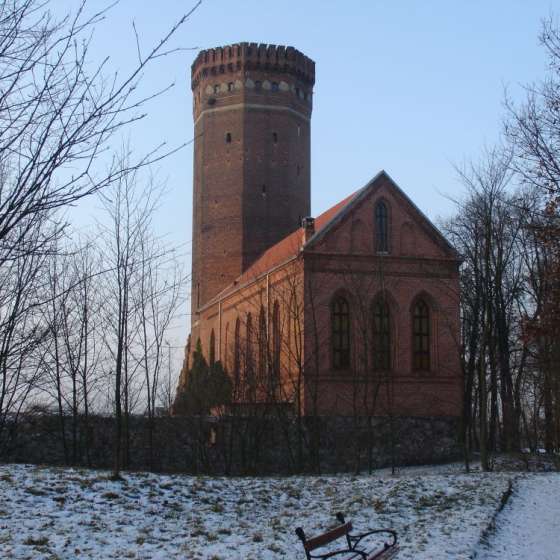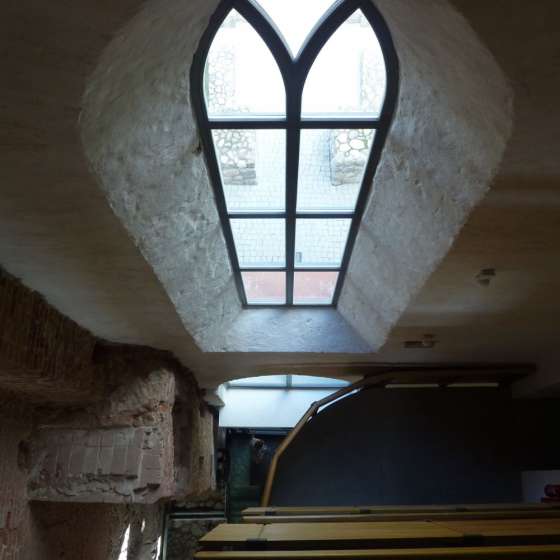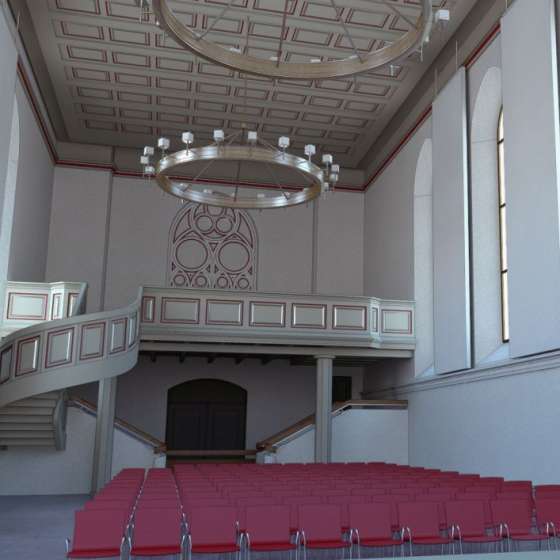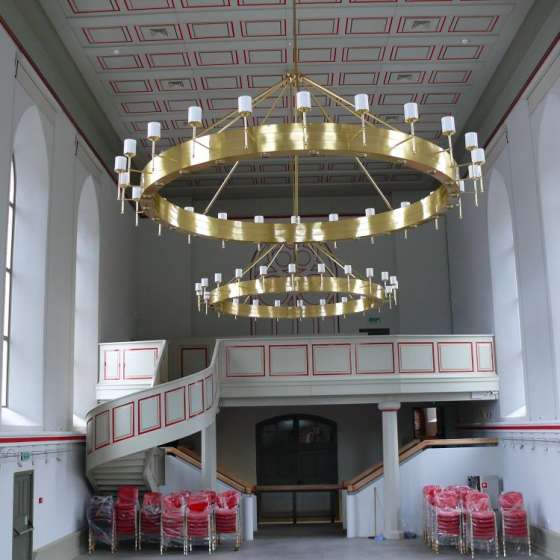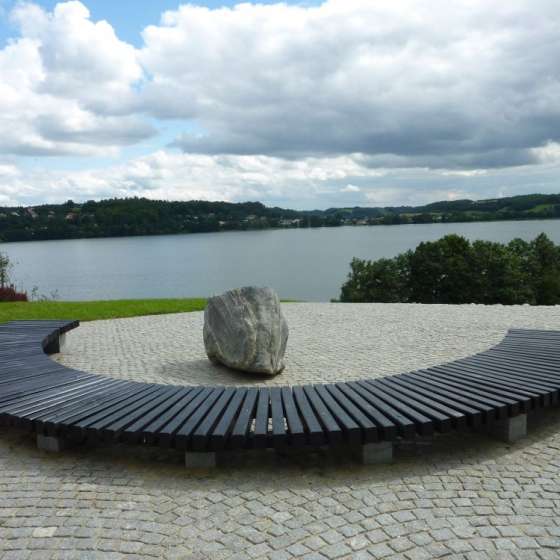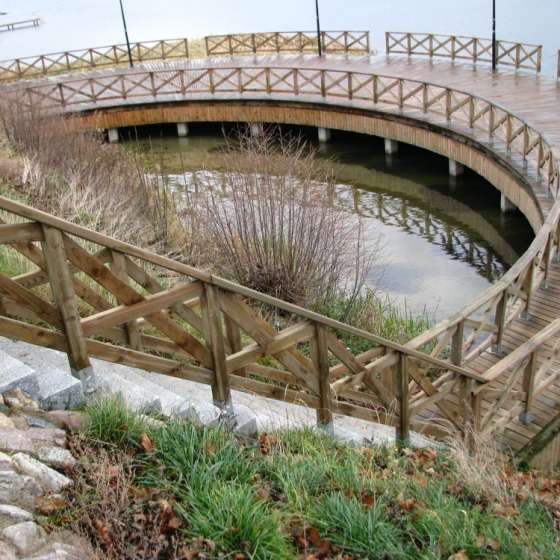Iwona Dzierżko-Bukal
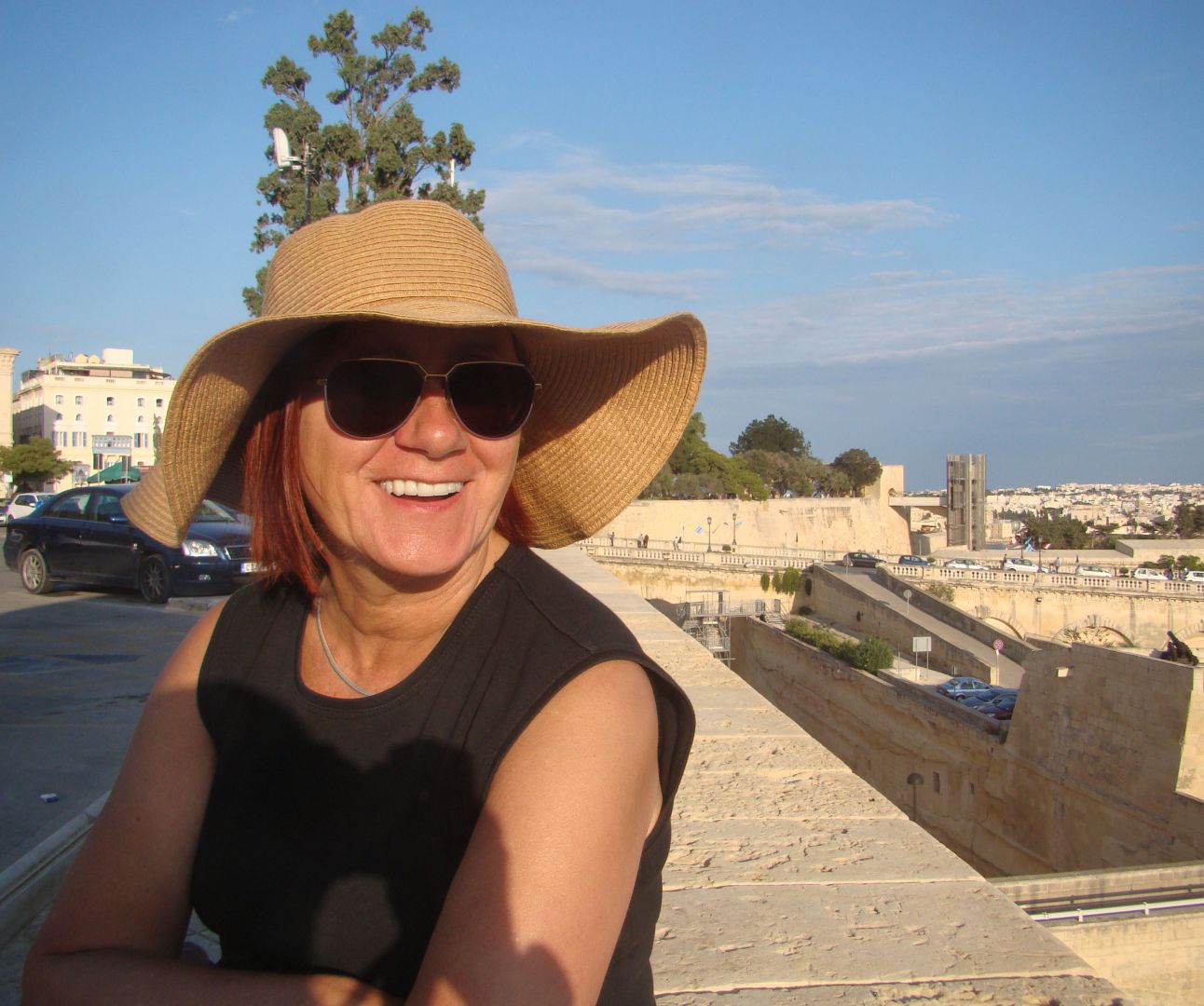
Iwona Dzierżko-Bukal
Wydział: Architektura
E-mail: iwona.dzierzko-bukal@asp.gda.pl
Iwona Dzierżko-Bukal
„Moje prace projektowe wymagają racjonalizmu, podejmowania wnikliwych studiów przedmiotu oraz rozwiązywania problemów technicznych, funkcjonalnych i estetycznych. Ważne jest rozumienie różnic, jakie występują między artystyczną (intuicyjną) a techniczną (pragmatyczną) percepcją rzeczywistości. Interesuje mnie problematyka współczesnego funkcjonowania wnętrz historycznych, gdzie widać inspiracje dawnym wzornictwem, ale też rozwiązania całkowicie współczesne. Z doświadczeń z zakresu architektury krajobrazu wynikły formy terenowe, stojące na pograniczu architektury i rzeźby.”
Stopień/stanowisko: dr hab. inż. arch./ prof. ASP
Absolwentka Wydziału Architektury Politechniki Gdańskiej oraz Wydziału Architektury i Wzornictwa PWSSP (obecnie ASP) w Gdańsku. Architekt IARP, doktor habilitowany i profesor na Wydziale Architektury ASP w Gdańsku, gdzie prowadzi Interdyscyplinarną Pracownię Architektury. Wykładowca w Szkole Doktorskiej Akademii Sztuk Pięknych w Gdańsku. Ukończyła studia podyplomowe na Wydziale Zarządzania i Ekonomii PG i uzyskała tytuł Certified Research & Development Project Management Associate IPMA (zarządzanie projektem i zarządzanie projektem badawczym). Ekspert PARP, NCBiR, Instrumentu UE „Innovation Coach” i BGK w specjalności: inteligentne technologie kreacyjne oraz inteligentne i energooszczędne budownictwo.
Prowadzi działalność naukowo-badawczą, obejmującą interdyscyplinarne projekty z obszaru architektury, wzornictwa i sztuki. Obszar zainteresowań badawczych:
- architektura – przede wszystkim zagadnienia związane z kształtowaniem przestrzeni publicznych oraz architektura wnętrz i wystawiennictwo (w tym scenografia plenerowa),
- innowacje, metodyka projektowania i zarządzanie projektem badawczym.
Prowadzone prace badawcze koncentrują się na tematyce przestrzeni publicznych. Podejmowana tematyka dotyczy tzw. przestrzeni lokalnych (rozumianych jako elementy procesu rewitalizacji zdegradowanych obszarów miasta) oraz roli sztuki i designu w projektowaniu przestrzeni publicznej. Zgodnie z przyjętą metodą badawczą, prowadzone prace ujmują analizowane zjawisko możliwie szeroko, tj. wybiegają poza istniejące uwarunkowania formalno-przestrzenne oraz wytyczają nowe kierunki zmian w przestrzeniach publicznych, a zamiast skupiać się na tradycyjnym, biernym wpisywaniu rozwiązań w zastaną rzeczywistość przejmują inicjatywę i wskazują nowe cele, także te trudne i o bardzo długiej perspektywie realizacji. Ważne przy tym jest rozumienie różnic, jakie występują między artystyczną (intuicyjną) a techniczną (pragmatyczną) percepcją rzeczywistości. Projekty badawcze są realizowane we współpracy z podmiotami zewnętrznymi, działającymi dla szeroko rozumianego pożytku publicznego (np. samorządy).
Projekt SMART CITY SEAT (SCS) – ELEGANCE
[2024]
"My design work requires rationalism, undertaking a thorough study of the subject and solving technical, functional and aesthetic problems. It is essential to understand the differences that exist between the artistic (intuitive) and technical (pragmatic) perception of reality. I am interested in the issues of the contemporary functioning of historical interiors, where you can see inspirations from the old design, but also completely new solutions. Field forms on the border between architecture and sculpture have arisen from experience in the field of landscape architecture."
A graduate of the Faculty of Architecture of the Gdańsk University of Technology and the Faculty of Architecture and Design of the State Higher School of Fine Arts (now the Academy of Fine Arts) in Gdańsk. IARP architect, habilitated doctor and professor at the Faculty of Architecture of the Academy of Fine Arts in Gdańsk, where he runs the Interdisciplinary Architecture Studio. Lecturer at the Doctoral School of the Academy of Fine Arts in Gdańsk. She completed postgraduate studies at the Faculty of Management and Economics of the GUT and obtained the title of Certified Research & Development Project Management Associate IPMA (project management and research project management). Expert of PARP, NCBiR, EU Instrument "Innovation Coach" and BGK in the field of: intelligent creative technologies and intelligent and energy-efficient construction.
He conducts scientific and research activities, including interdisciplinary projects in the field of architecture, design and art. Area of research interests:
- architecture – primarily issues related to shaping public spaces as well as interior design and exhibition design (including outdoor scenography),
- innovations, design methodology and research project management.
The research work carried out focuses on the subject of public spaces. The topics discussed concern the so-called local spaces (understood as elements of the process of revitalization of degraded city areas) and the role of art and design in the design of public space. In accordance with the adopted research method, the work carried out covers the analyzed phenomenon as broadly as possible, i.e. it goes beyond the existing formal and spatial conditions and sets new directions for changes in public spaces, and instead of focusing on the traditional, passive incorporation of solutions into the existing reality, they take the initiative and indicate new ones. goals, including difficult ones and those with a very long time horizon. It is important to understand the differences between artistic (intuitive) and technical (pragmatic) perception of reality. Research projects are carried out in cooperation with external entities operating for the broadly understood public benefit (e.g. local governments).

